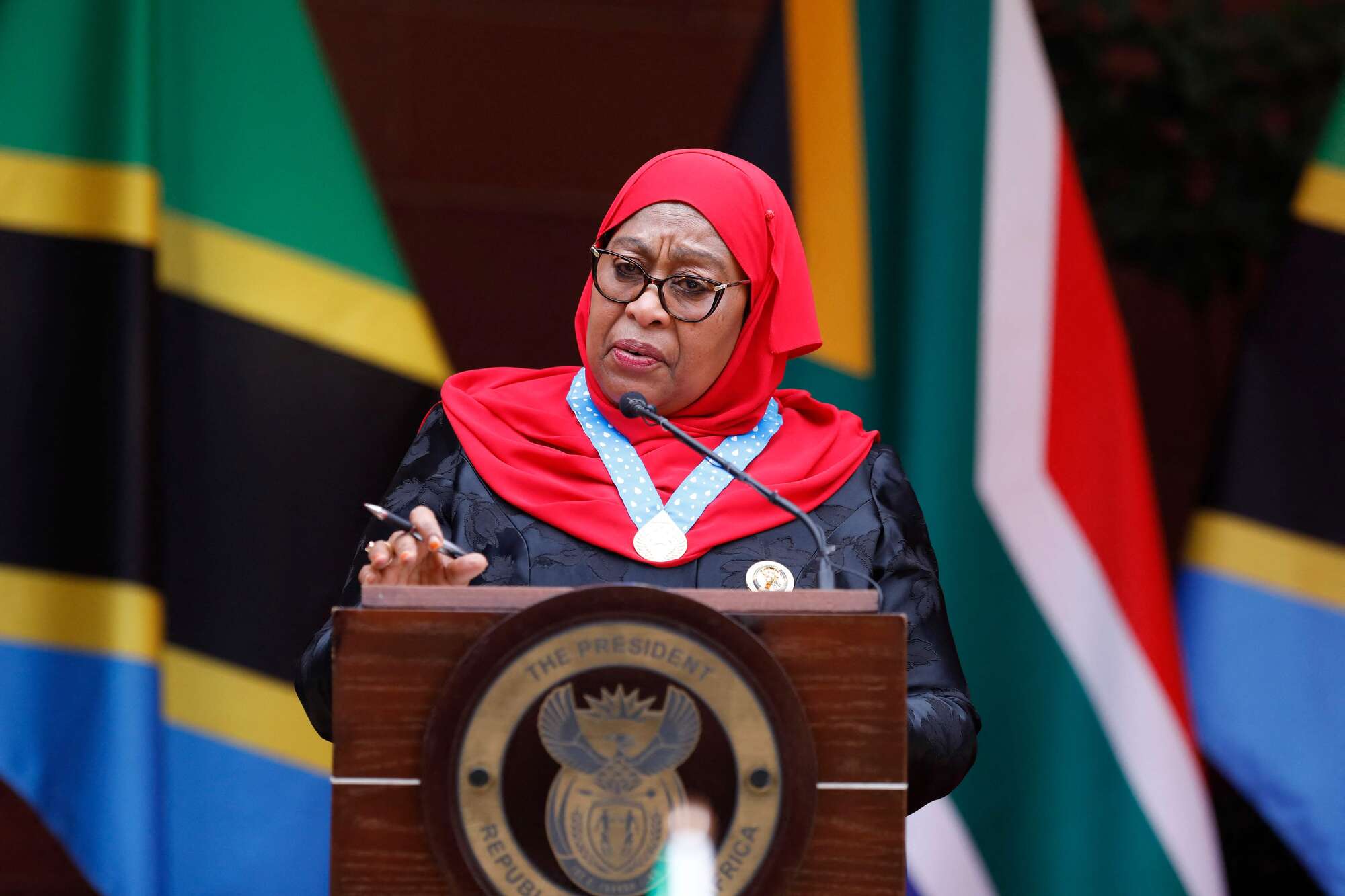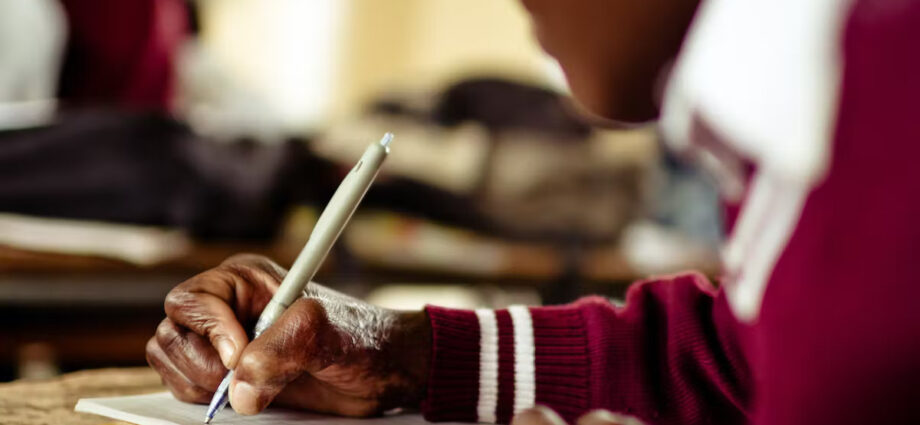The African Committee of Experts on the Rights and Welfare of Children recently made what experts call a landmark ruling. The committee is a regional quasi-judicial organ of the African Union. Its task is to monitor and implement the African Charter on Child’s Rights and Welfare, interpret the provisions of the charter and promote and protect children’s rights in Africa. The group of experts denounced the Tanzanian government’s policy of expelling pregnant and married girls from school. Tanzania has a history of using the country’s controversial 1961 law to deny adolescent mothers access to education. The late president John Magufuli openly referred to adolescent pregnancy as “immoral behaviour” that would not be allowed “to permeate primary and secondary schools”.
Reproductive health researcher Anthony Ajayi is optimistic that the recent ruling will compel more African countries to keep pregnant adolescents in school. He unpacks the details of the complaint and what Tanzania has been ordered to do.
What was the complaint against Tanzania?
In 2019, the Legal and Human Rights Centre (an NGO based in Dar es Salaam) and the Centre for Reproductive Rights (a global advocacy organisation) filed a complaint against the Tanzanian government. The two organisations are representing Tanzanian girls.
They accused the government of subjecting primary and secondary school girls to compulsory pregnancy tests and expelling them from school if they are found to be pregnant. The complainants alleged that school administrators were interpreting pregnancy as a moral offence punishable by expulsion. Under the expulsion policy, pregnant girls are subjected to unlawful detention or harassment until they expose the identity of the person who impregnated them.
Moreover, the government’s expulsion of pregnant and married girls is considered permanent. The affected girls are only allowed to be readmitted to private or vocational training schools and not their previous public schools.
Another key complaint was that the government deprived pregnant girls of access to sexual reproductive health information and services.
What are the decisions?
The decision obligates the Tanzanian government to immediately prohibit mandatory pregnancy testing – in schools and in health facilities. The government also has to remove wedlock as a ground for expulsion, readmit school girls affected by the ban, and provide special support to compensate for the lost years.
The country is also mandated to investigate cases of detention of pregnant girls, release those detained and stop the arrest of pregnant girls. Girls who dropped out of school due to pregnancy or wedlock must be readmitted without preconditions.
Moreover, the Tanzanian government is required to provide sexuality education for adolescent children as well as child-friendly sexual reproductive and health services. It must sensitise teachers, school administrators, healthcare providers, police, and other actors about the protection that should be accorded to pregnant and married girls.
How will this affect the lives of young women and girls in Tanzania?
Adolescent childbearing in Tanzania has been on an upward trajectory. In 2010 an estimated 22.8% of teenagers aged 15-19 had a child or were pregnant. By 2016, the estimate had risen 26.8%.
However, the number of girls dropping out of school due to pregnancy has declined from 9,800 girls in 2009 to 6,500 in 2021.
Education is important for girls’ future earning power and the promotion of their lifelong health and socioeconomic well-being. Implementing the committee’s decision would help break the persistent poverty cycle associated with early childbearing and missing out on education.
This decision will also open doors for more contributions from development partners keen on promoting girls’ education and working to achieve gender equality.
The decision directly mandates Tanzania to comply. But all 49 countries that have ratified the African Charter on the Rights and Welfare of the Child are subject to this interpretation.
With this decision, civil society organisations now have an additional yardstick to measure their government’s compliance with the African Charter on Child’s Rights and Welfare.
What has been the impact of other decisions by the African committee of experts on the rights and welfare of the child in other countries?
Since 2005, the African Committee of Experts on the Rights and Welfare of Children has received 22 complaints.
Of the complaints filed, the monitoring body has to date:
- finalised seven
- settled two of them amicably with relevant government organs and their complainants
- declared five inadmissible due to the complainants’ failure to exhaust in-country remedies
- dismissed complaints that fail to meet the conditions laid down in the Charter and the committee’s Guidelines on Consideration of Communications or that fall outside of the mandate of the commission.
Though the committee lacks enforcement powers, we believe this decision about Tanzania is significant.
The transition of power to Samia Suluhu Hassan, the country’s first female president, offers renewed hope for girls’ education. The education minister, Joyce Ndalichako, and the permanent secretary at the ministry of education have stated that the policy will be changed.
This ruling however goes beyond changing the Tanzanian policy. It calls on countries to address existing gaps in their laws, policies and programmes, to be fully compliant with the charter. Merely stating that a school reentry policy is in place will no longer be sufficient.
Tanzania’s current administration has already expressed goodwill by offering to change the policy. This goodwill can be harnessed to ensure that the decisions are fully implemented.
Juliet Kimotho, Senior Advocacy Officer at the African Population and Health Research Center, contributed to this article.
Anthony Idowu Ajayi, Associate research scientist, African Population and Health Research Center
Source: allafrica.com
Share this news
This Year’s Most Read News Stories

Tanzania Confirms Outbreak of Marburg Virus Disease
Dodoma — Tanzania today confirmed an outbreak of Marburg virus disease in the northwestern Kagera region after one case tested positive for the virus following investigations and laboratory analysis of suspected cases of the disease.
President of the Republic of Tanzania, Her Excellency Samia Suluhu Hassan, made the announcement during a press briefing alongside World Health Organization (WHO) Director-General, Dr Tedros Adhanom Ghebreyesus, in the country’s administrative capital Dodoma.
“Laboratory tests conducted in Kabaile Mobile Laboratory in Kagera and later confirmed in Dar es Salaam identified one patient as being infected with the Marburg virus. Fortunately, the remaining suspected patients tested negative,” the president said. “We have demonstrated in the past our ability to contain a similar outbreak and are determined to do the same this time around.”
A total of 25 suspected cases have been reported as of 20 January 2025, all of whom have tested negative and are currently under close follow-up, the president said. The cases have been reported in Biharamulo and Muleba districts in Kagera.
“We have resolved to reassure the general public in Tanzania and the international community as a whole of our collective determination to address the global health challenges, including the Marburg virus disease,” said H.E President Hassan.
WHO is supporting Tanzanian health authorities to enhance key outbreak control measures including disease surveillance, testing, treatment, infection prevention and control, case management, as well as increasing public awareness among communities to prevent further spread of the virus.
“WHO, working with its partners, is committed to supporting the government of Tanzania to bring the outbreak under control as soon as possible, and to build a healthier, safer, fairer future for all the people of Tanzania,” said Dr Tedros. “Now is a time for collaboration, and commitment, to protecting the health of all people in Tanzania, and the region, from the risks posed by this disease.”
Marburg virus disease is highly virulent and causes haemorrhagic fever. It belongs to the same family as the virus that causes Ebola virus disease. Illness caused by Marburg virus begins abruptly. Patients present with high fever, severe headache and severe malaise. They may develop severe haemorrhagic symptoms within seven days.
“The declaration by the president and the measures being taken by the government are crucial in addressing the threat of this disease at the local and national levels as well as preventing potential cross-border spread,” said Dr Matshidiso Moeti, WHO Regional Director for Africa. “Our priority is to support the government to rapidly scale up measures to effectively respond to this outbreak and safeguard the health of the population,”
Tanzania previously reported an outbreak of Marburg in March 2023 – the country’s first – in Kagera region, in which a total of nine cases (eight confirmed and one probable) and six deaths were reported, with a case fatality ratio of 67%.

Sign up for free AllAfrica Newsletters
Get the latest in African news delivered straight to your inbox
In the African region, previous outbreaks and sporadic cases have been reported in Angola, the Democratic Republic of the Congo, Ghana, Kenya, Equatorial Guinea, Rwanda, South Africa and Uganda.
Marburg virus is transmitted to people from fruit bats and spreads among humans through direct contact with the bodily fluids of infected people, surfaces and materials. Although several promising candidate medical countermeasures are currently undergoing clinical trials, there is no licensed treatment or vaccine for effective management or prevention of Marburg virus disease. However, early access to treatment and supportive care – rehydration with oral or intravenous fluids – and treatment of specific symptoms, improve survival.
Source: allafrica.com

President Samia takes on Tanzania’s web of corruption
The President takes on the web of corruption in the Tanzanian government and quasi-government institutions flagged by the newest report by Controller & Auditor-General Charles Kichere. Continue Reading

Rare megamouth shark found in Zanzibar for the first time – why so little is known about it
The recent sighting was only the sixth time a megamouth had ever been found off the coast of Africa.Continue Reading












